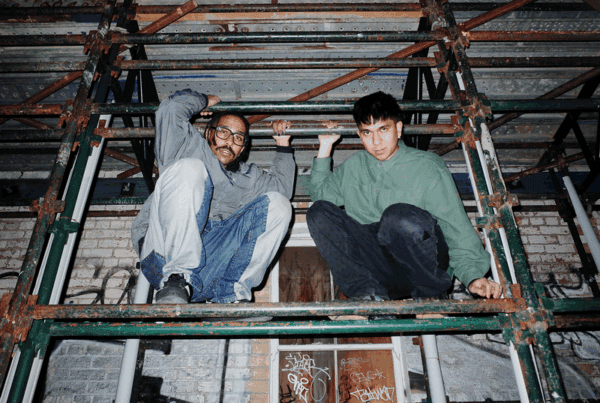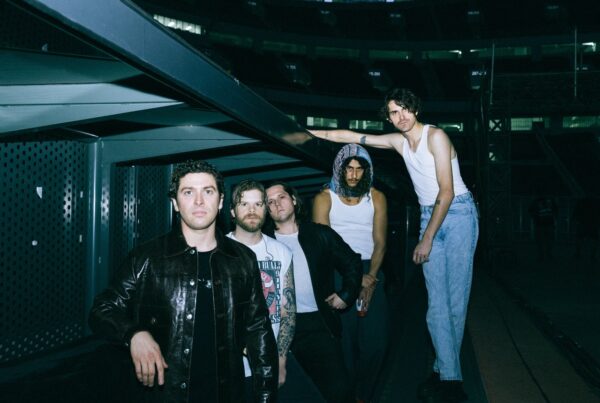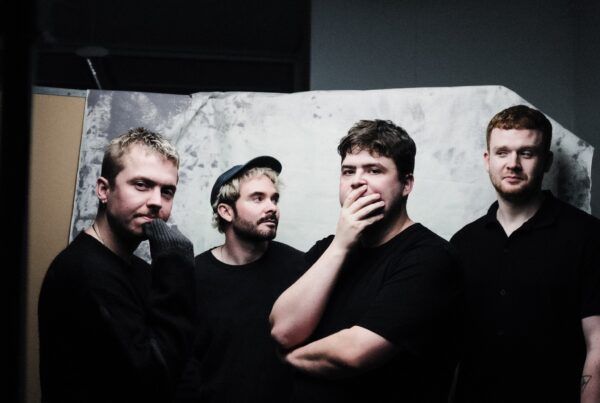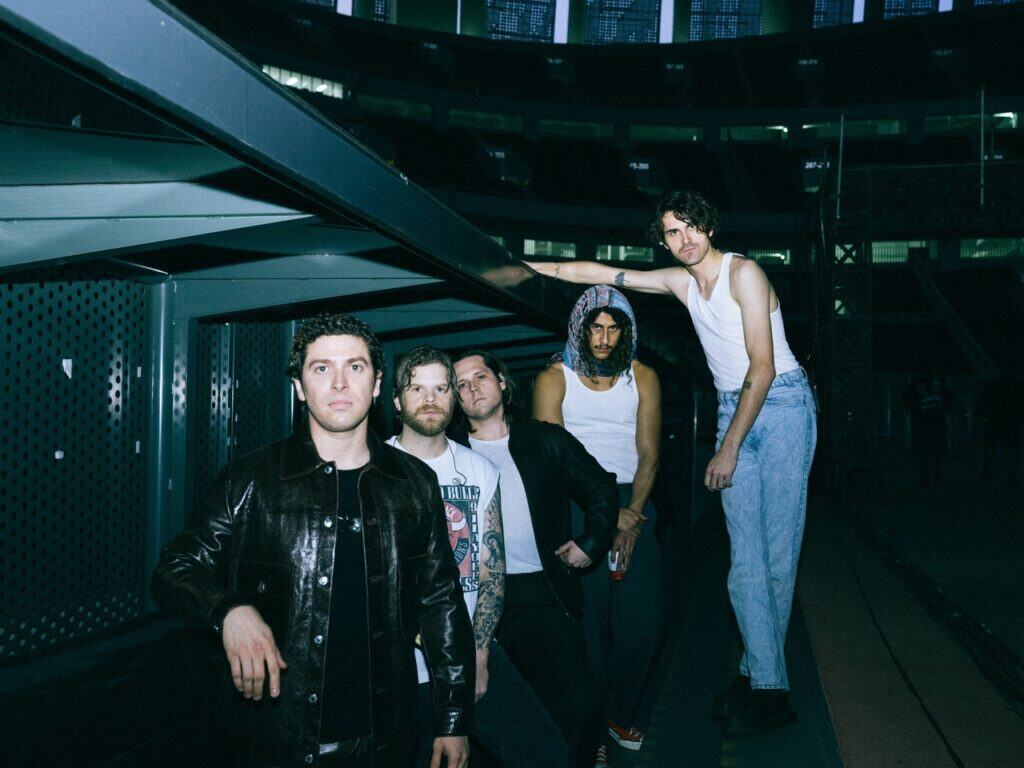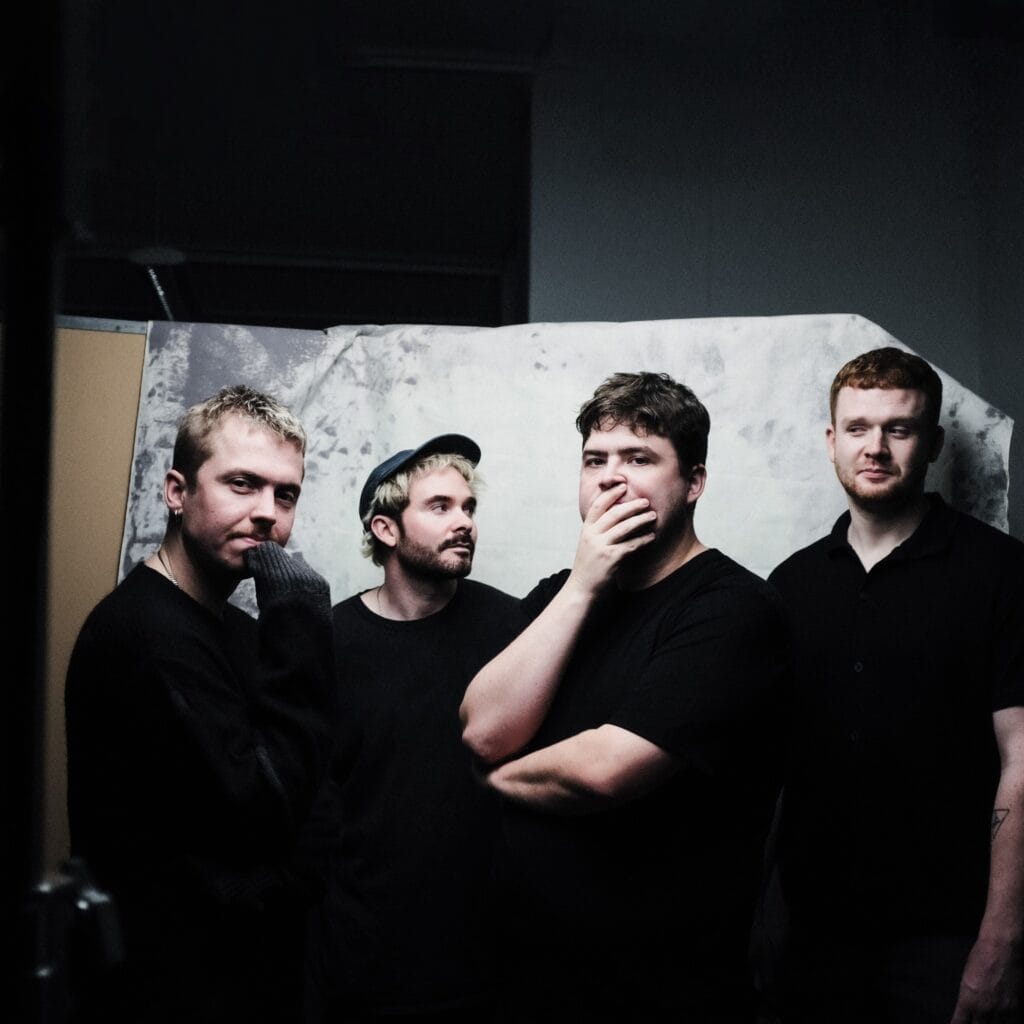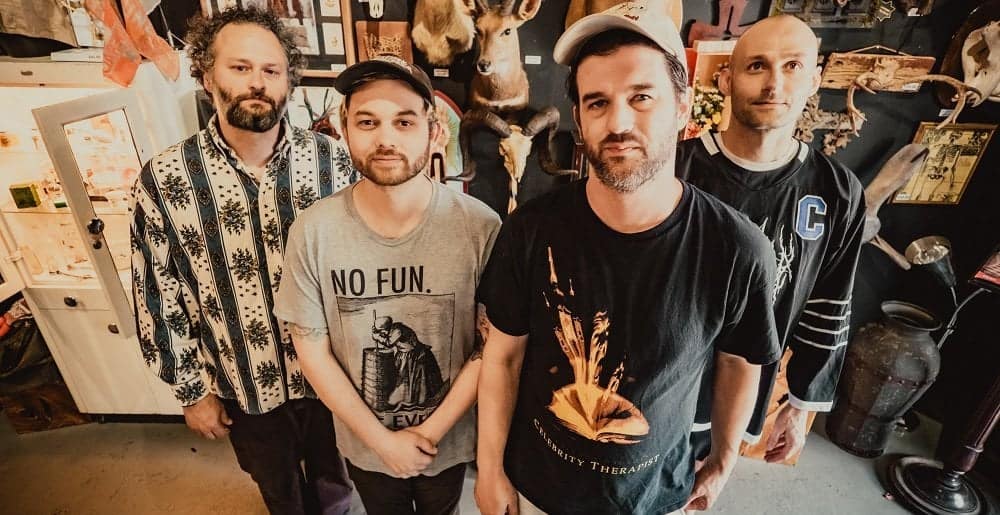If you haven’t heard of BONES, where have you been? This London-hailing duo are at the epicentre of a new surge of all-female music they like to call ‘Future Rock’, their music a livewire of confidence and irresistible mettle. Bones certainly have something to say, and they aren’t afraid to say it.
[like_to_read][/like_to_read]
Having already taken their sound across the Atlantic, sweeping from state to state in the US and generating a fanbase that are besotted with their particular brand of magic, what is their attitude to success? “I don’t think we are by any means successful yet. All we are doing is what we love and when people start to respond to it, it’s frickin’ incredible to us. But honestly, I know this sounds so lame, it’s about being happy and enjoying what you do. I think we make our own measurement of success; as long as you’re reaching your own measurement of what success is and you’re happy then that’s all that matters.”
A question we often like to ask here at Soundsphere magazine is whether success is strictly location-centric. In the UK, there is a preconception embedded into our psyche that in order to be successful you have to go to London; as a result, the north’s strong musical identity is neglected as a destination and is only seen as a platform for reaching greater things. “Success is such a subjective thing. If all that you ever wanted was to play in a packed room every night and for people to hear your music, it doesn’t matter where you are because, you know, you could be playing in Cornwall every night in a fisherman’s pub and every night it could be rammed and you could get the energy you need from that. I think for myself being from London and Carmen being from all over the place, in some ways it’s harder coming from a big city where there’s so many people and so many bands and everyone’s successful, the measuring stick is a lot higher. You know, if you’re not selling out the big venues, I think these days you’ve got to take whatever joy you can because the music industry is so strange and so different to what it was. I think you can be anywhere to have success, it just depends on what you’re looking for. I think obviously in LA, there’s loads of opportunities and it’s full of unique, ridiculous people and if that’s what you’re looking for, that’s the version of success you’re going for, then definitely in places in LA you’re going to get that kind of more starry street vibe. Gone are the days when you’d “shoot for the stars” and want to become a huge superstar – a lot of the time that doesn’t make people very happy. You can get so much joy out of so many different versions of “doing well”. Sometimes going for the pot of gold at the end of the rainbow is a bit dangerous. Finding the joys in day to day is more important. We did a tour and some of the rooms were full and some of the rooms weren’t full, and for any of those people in the less full rooms, that success stands the same because those people bought our tickets and came to see us. It doesn’t matter how full it was. That made us feel successful: that anyone would want to pay to see us play.”
Soundsphere Magazine often works with young people from less fortunate backgrounds to help them to carve a path in the music industry. BONES told us about how your income doesn’t have to dictate your outcome when it comes to being creative: “You can do anything yourself. Whether it’s videos, whether it’s artwork, or what you wear on stage. Number one: you have to do it because you love it, because it’s tough and not simple anymore to be successful. You’ve got to really fucking love it. Number two: you don’t need money to make music videos, you don’t need money to make artwork. All of the programmes you can get yourself. You don’t necessarily even need to go into a studio. Don’t let things like money get in the way of creating. The best work comes from a struggle. Another thing: it’s easy to say but don’t focus on the end game. Make monthly plans, enjoy every moment: “Where do I want to be the next month? Where do I want to be the month after that?” and focus on the short-term goals rather than the long-term ones. Since the music industry is now so volatile, long-term goals can just set you up for disappointment. If it works out, great – but focus on things from day to day that make you really happy and make you enjoy being a musician.”
A question put forward to us from a member of Hull’s Make Noise group, a collective of women and non-binary people working to improve their visibility and safety on the music scene, was how important to BONES consider the visual aspect of their work? Undeniably, the band have a rough-around-the-edges beauty that is as unapologetic as it is confident – but much more than that, they’re clever: everything is planned to the last detail for effect. Rosie said, “It matters hugely for us. I do all the artwork and work out what we wear and the two come hand in hand. The kind of music we were making gave birth to the visuals. I think for all artists – not just us – it’s important to support the music you’re making with visuals. In a world where people are mostly watching things on YouTube and if your music videos or artwork aren’t reflective of the music you’re producing you’re missing a trick. Everything has to fit into the world you’re creating, otherwise how do you expect other people to join it? Most of it is just a result of enjoying what we do, so it comes quite naturally.”
You’ll recall that the genre BONES like to adhere to self-described, ‘Future Rock’. This is a heady concoction of classic rock instrumentals and voltaic electrics that between the two of them, would be a tall order to translate from studio to stage. We asked them if that was the case: “Taking our sound on tour was tricky at first. We always were a rock band and that’s the aesthetic we wanted to put across. We work with a producer called Filippo Cimatti and he does all the drums in the studio, so translating that live was the first challenge. We said we’re a rock and roll band from the future. Filippo is incredible at working out how our music will sound live and making sure all the bass is coming through. I can’t say that there are that many challenges aside from that because we’re self-contained. Until we’ve got a huge touring budget where we’re headlining and have two hours to set up our stuff, we’ve got to get there, plug in, and go. When we play live it’s all about making it as simple as possible. No matter how difficult you think it might be to translate your sound to a stage, there’s always a solution. And again, you don’t need money. The less money you have the more creatively you have to think.”
It goes without saying that any kind of team work in any field can be testing – even more so when the work is creative. How do BONES manage to maintain a good work ethic and stay on track? “We’ve set up an infrastructure that allows us to adapt for when things get difficult. We’re pretty chill. We work hard. There are things that we used to find challenging, but we’ve done it all. We’ve played to one person and we’ve played in places full of them; we’ve had no money and we’ve had a bit of money. We’re quite unfazed now. As long as you’ve got your goals in mind, many things can be overcome. Don’t get overwhelmed.” Leading on from that, we were interested in the personal dynamic between Rosie and Carmen themselves and what qualities they find appealing in each other that keeps that infrastructure solid. Rosie said: “I’m more creative in terms of visuals, whereas Carmen is better at actually making them happen. She’s like the man on the ground. Carmen is very technical as well as creative with song writing, knowing all the chords and how to put stuff in a different key. I know nothing about that. We’re a really good team; we have a lot of respect because both us can’t really do what the other does. We all kind of fill a different role.”
BONES are going places, there’s no doubt about it. What legacy do they hope to leave? “Our answer would first and foremost be to empower people. Kicking ass is a by-product of that. For us, it’s all about the little girls and boys coming up to us and saying they’re learning how to play guitar, and even grown men coming up to us and telling us they feel empowered. Music is such a brilliant thing, and if ours can give people a voice and make them feel like they’re not alone, I think that’s what we want to do. The reason why we want to get big (because we will do) is so that we can do that on a greater scale. We just want to make our shows as exciting as possible, not just in a shouty riot grrrl way, but so that we can be as good as we can be in our own right, regardless of typecasts. That, for us, would be success; that would be enough.”

